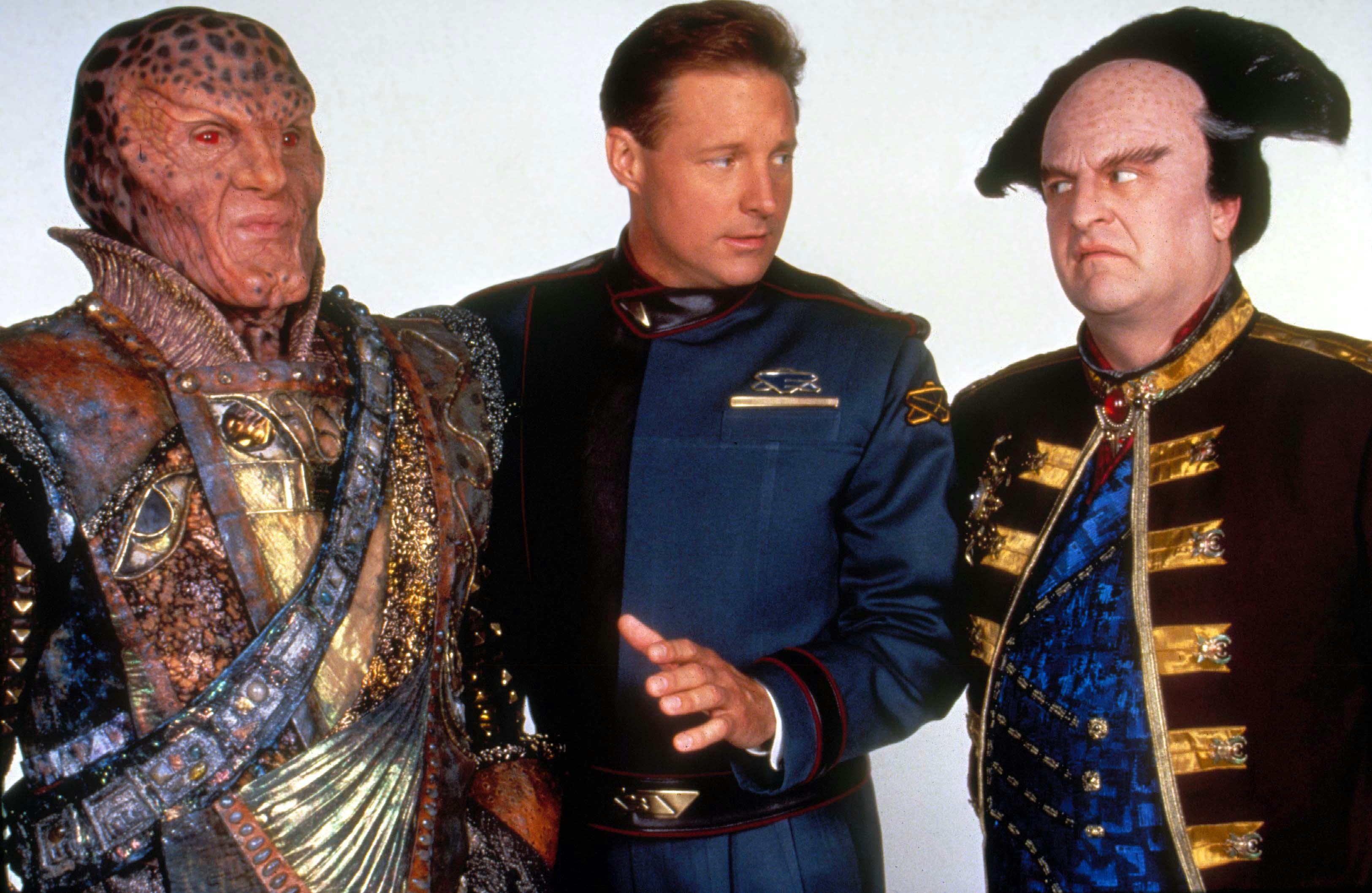
What if your favorite prestige TV show aired episodes out of order? What if Andor had listed “Welcome to the Rebellion” before “Who Are You?” What if Battlestar Galactica had aired “Crossroads” before “Maelstrom”? Today, the idea of a pivotal TV episode airing before an episode that is supposed to precede it is nearly unthinkable. But 30 years ago, this brief continuity error actually happened on a very pivotal science fiction series. The year was 1995, and the name of the place was Babylon 5. And back then, in syndication, two Season 2 episodes — “Knives” and “In the Shadow of Z'ha'dum” were aired in the wrong order.
In 1990s science fiction TV, serialization was rare. While shows like Buffy the Vampire Slayer and aspects of Star Trek: Deep Space Nine were pioneers in having interconnected story arcs over multiple seasons, the true pioneering show on this front was Babylon 5. Unlike shows like DS9 or Buffy, there wasn’t really a big writers’ room on Babylon 5. The numbers here simply don’t lie: Out of 110 episodes of B5 total, series creator J. Michael Straczynski has sole screenwriting credit on 92, meaning only 18 episodes were written (or co-written) by others. If you look for other examples of science fiction TV series like this, you won’t find any.
The point is, even in the first two seasons, in which guest writers were penning a few Babylon 5 episodes here and there, Straczynski had a pretty good sense of how he wanted the overall story to shake out. And so when the episode “In the Shadow of Z'ha'dum” aired during the week of May 10, the Season 2 arc of Babylon 5 was briefly disrupted. And that’s because the following week, the week of May 17, the episode “Knives” dropped, which was supposed to have aired before “In the Shadow of Z'ha'dum.” These are episodes 16 and 17 of Season 2, but they’re supposed to be swapped.
The reason why is huge. While “Knives” is a great episode, written by Larry DiTillio, it doesn’t carry the massive series-changing revelations of “In the Shadow of Z'ha'dum,” written by Straczynski. In the latter episode, which aired first, Captain Sheridan (Bruce Boxleitner) learns that his long-missing wife Anna was part of an expedition to the planet Z'ha'dum, the home of the villainous Shadows. Essentially, figuring this out fundamentally changes Sheridan’s motivations throughout the series. The struggle against the forces of darkness doesn’t become abstract; after this episode, it's deeply personal.
So, back in 1995, when viewers saw “Knives” air after “In the Shadow of Z'ha'dum,” they would be understandably confused. “Knives” opens with Sheridan and Garibaldi (Jerry Doyle) in the batting cage, hitting some fair balls, some foul balls, and at least one home run. Sheridan is fairly happy-go-lucky at the top of this episode, which, of course, doesn’t align at all with the revelations of “In the Shadow of Z'ha'dum.”

“Knives” does have some good world-building, including references to the missing space station, Babylon 4, which reappears in Season 3 in a massive time travel two-parter, “War Without End.” It also establishes the increasingly corrupt aspects of the Centauri government, and gives Londo (Peter Jurasik) a particularly tender episode. But, for most B5 fans, “Knives” is not a turning point episode, and “In the Shadow of Z'ha'dum” very much is.
Back in 1997, in the book Babylon 5: Coming of Shadows by Jane Killick, Straczynski made it clear that “In the Shadow of Z'ha'dum” was an episode designed to set up everything that came later. Straczynski likened this moment in Babylon 5 to the famous playwriting technique known as Chekhov’s Gun, when a specific plot point is set up in advance. “This was putting the gun on the wall so I could fire it off later on,” he said.
Today, if you watch Babylon 5 on Tubi or Amazon Prime, these episodes are in the correct viewing order, with “Knives” coming before “In the Shadow of Z'ha'dum.” But as the air dates prove, these episodes did drop out of order. So, which is the more authentic B5 rewatch? If you want to party like it’s 1995, you could invert these two episodes and replicate the feeling that confused fans had 30 years ago.







